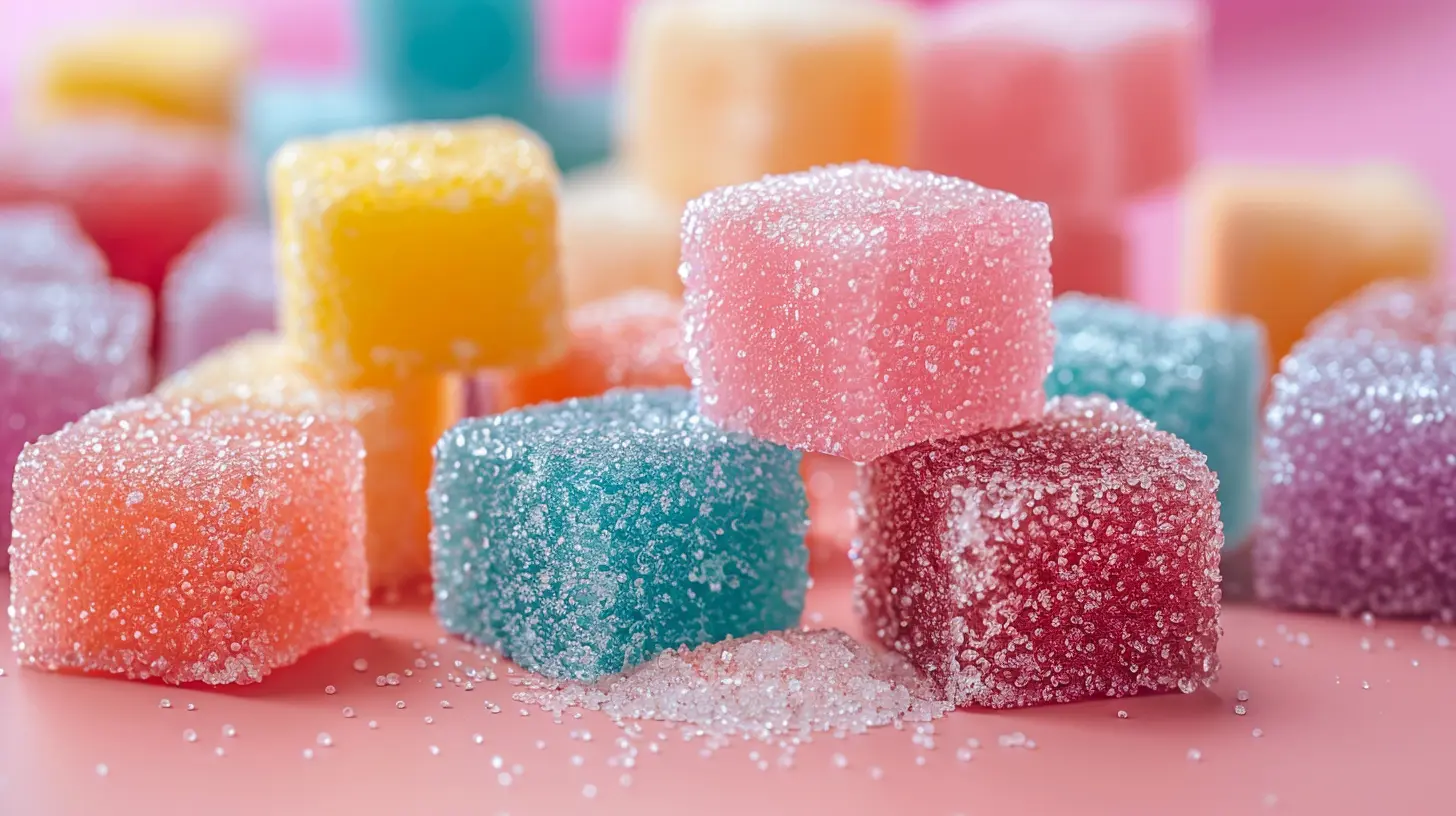24 February 2025
Let’s talk about sugar. Yes, that sweet, innocent-looking substance that hides in almost everything we eat. It’s everywhere—your morning coffee, snacks, even in "healthy" foods marketed as low-fat alternatives. While sugar might give you a quick energy boost (hello, sugar high!), it’s also likely to leave you in a slump later (cue the sugar crash). But here's the kicker: cutting sugar from your diet could do more than stabilize your energy levels—it could actually supercharge your focus and productivity.
Sounds too good to be true, right? Stick with me as we dive into the science behind sugar, how it impacts your brain and body, and why ditching it can help you become the most focused and productive version of yourself.
Understanding the Sugar and Brain Connection
Ever felt like your brain turned to mush after a sugar binge? You're not imagining it. Sugar directly affects your brain. When you consume sugar, your body quickly converts it into glucose, which your brain uses for energy. That’s why sugar is often referred to as "brain fuel." But before you grab that donut and call it brain food, there’s a catch.Sugar impacts your brain's reward system, stimulating the release of dopamine—the same "feel-good" chemical responsible for you binge-watching Netflix instead of doing actual work. While this might make you feel good momentarily, too much sugar overstimulates the brain, leading to mental fog, poor memory, and reduced cognitive performance.
Think of sugar like fireworks: an initial burst of excitement followed by utter darkness. It gives you a quick energy rush but leaves you with a crash that can obliterate your focus and sap your productivity. That’s not exactly the recipe for a productive workday, is it?
The Sugar Crash: Why It’s Killing Your Productivity
Ever wonder why you feel sluggish after lunch or need a nap in the afternoon? If your meal was packed with sugar, you already have your answer. Here's what happens:1. The Sugar Spike: You eat a sugary snack, and suddenly, your blood sugar levels shoot through the roof. You feel energized, alert, maybe even a little invincible.
2. The Insulin Overload: Your pancreas works overtime, releasing insulin to shuttle that sugar out of your bloodstream and into your cells.
3. The Crash: Once blood sugar levels plummet, your energy tanks. Cue brain fog, irritability, and an overwhelming urge to procrastinate.
Sound familiar? This rollercoaster of highs and lows disrupts your ability to focus and stay productive. Instead of powering through your tasks, you’re left scrambling to refuel with—you guessed it—more sugar. It’s a vicious cycle.
How Sugar Impacts Your Focus
Let’s dig a little deeper into why sugar is such a focus killer. When your blood sugar levels are erratic, so is your brain. The spikes and dips impair your prefrontal cortex—the part of your brain responsible for focus, decision-making, and self-control.Think of your brain like a finely tuned car engine. If you give it too much fuel too quickly (sugar), it floods the system. Then, when the fuel runs out, the engine sputters and stalls. This uneven energy supply makes it nearly impossible to concentrate on tasks, let alone crush your to-do list.
On the flip side, when you cut sugar, your blood sugar levels stabilize, and your brain operates more smoothly. No crazy highs. No catastrophic crashes. Just steady, sustained focus.
The Surprising Benefits of Cutting Sugar
So, what happens when you kick sugar to the curb? Let me tell you: it’s like flipping a switch. Suddenly, your brain feels sharper, your energy lasts longer, and your productivity skyrockets. Here’s why:1. Improved Mental Clarity
Without sugar clouding your brain (literally), you experience less mental fog. Tasks that once felt overwhelming become manageable. You find yourself completing projects faster and with more precision.2. Stable Energy Levels
Say goodbye to the sugar rollercoaster. Removing sugar helps keep your blood sugar levels steady, giving you consistent energy throughout the day. No more mid-afternoon crashes or unproductive slumps.3. Better Sleep
Did you know sugar can mess with your sleep? It spikes cortisol, the stress hormone, and disrupts your natural sleep-wake cycle. Cutting back can improve your sleep quality, leaving you more refreshed and ready to tackle the day.4. Enhanced Mood
Ever felt cranky after a sugar crash? That’s your volatile blood sugar talking. By ditching sugar, you enjoy more balanced moods, which can make even the most stressful workdays feel manageable.5. Sharper Cognitive Function
Cutting sugar improves memory, learning, and problem-solving skills. Need to nail that big presentation or come up with a creative solution? A sugar-free brain is your best ally.Tips for Cutting Sugar Without Losing Your Mind
Let’s be real—cutting sugar is easier said than done. Sugar is addictive, and cravings can hit hard. But don’t worry. Here are some practical tips to help you reduce sugar without feeling deprived:1. Start Small
You don’t need to quit sugar cold turkey. Begin by cutting out obvious sources like soda and candy. Once you’ve adjusted, tackle hidden sugars in packaged foods and condiments.2. Read Labels
Sugar hides under sneaky names like fructose, dextrose, and corn syrup. Check food labels for added sugars and aim for whole, unprocessed foods whenever possible.3. Swap Sugary Snacks for Healthy Alternatives
Instead of reaching for a cookie, try nuts, seeds, or a piece of fruit. These options provide natural sweetness and keep you full longer.4. Stay Hydrated
Sometimes what feels like a sugar craving is actually thirst. Drink water, herbal tea, or flavored seltzer to stay hydrated and curb cravings.5. Prioritize Protein and Healthy Fats
Protein and fats provide steady energy and keep you full, reducing the temptation to snack on sugary foods. Think eggs, avocados, nuts, and lean meats.6. Experiment with Natural Sweeteners
If you can’t give up the sweetness entirely, try natural alternatives like stevia, monk fruit, or a touch of honey. Just use them sparingly.What to Expect When You Cut Sugar
Okay, I won’t sugarcoat it (pun intended): the first few days might be tough. You could experience withdrawal symptoms like headaches, mood swings, and fatigue. But hang in there! Within a week or two, your body adjusts, and the cravings subside.As you stick to a low-sugar lifestyle, you’ll notice the changes: sharper focus, consistent energy, and a newfound ability to power through tasks. It’s like upgrading your brain’s operating system—it runs faster, smoother, and without glitches.
Take the Sugar-Free Challenge
Ready to take the plunge? Challenge yourself to go sugar-free for 7 days. Track how you feel—your energy levels, focus, moods, and productivity. You might be surprised at how quickly you notice improvements.Remember, it’s about progress, not perfection. Even small steps toward reducing your sugar intake can yield big results.
Final Thoughts
Cutting sugar might sound daunting, but the payoff is worth it. Improved focus, better productivity, stable energy levels, and a sharper mind are just a few of the benefits waiting for you. Plus, once you move past the initial adjustment period, you’ll realize you don’t even miss the sugar highs (or the crashes).So, why not give it a try? Your brain—and your to-do list—will thank you.







Riven Reese
Oh sure, ditching sugar will magically turn me into a productivity powerhouse. Because who needs brain fuel when you can just snack on kale and sip herbal tea? Can't wait to be a focus ninja!
April 6, 2025 at 3:37 PM